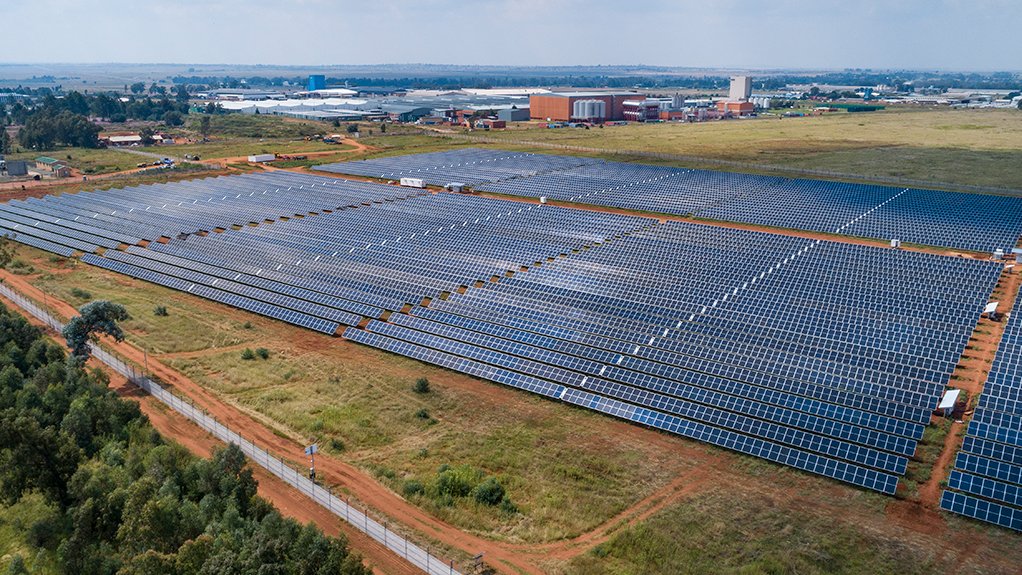Beer manufacturer Heineken continues its journey to being a sustainable company through its Brew a Better World strategy.
The strategy is built on three pillars: the environment, social impact as well as the responsible consumption of alcohol.
As part of the strategy, Heineken unveiled its water reclamation plant in April and its solar power plant last month, both at the company’s Sedibeng brewery, in Midvaal.
The €2-million water reclamation plant was commissioned in March 2020 at the eight-million-hectolitre-a-year brewery to help Heineken reduce the amount of water used in its production processes.
The water reclamation plant is part of the company’s Every Drop water strategy aimed at using water efficiently and ensuring water circularity, as well as water stewardship and supporting watersheds to absorb more water.
Moreover, a 19 ha, grid-based 6.5 MW solar photovoltaic plant was built in partnership with renewable-energy solutions specialists SOLA Group and will generate 17 000 MWh/y, supplying 30% of the brewery’s power consumption.
The plant started supplying power to the brewery in May.
The plant fits into the company’s net-zero carbon target, which entails being net-zero in its production process by 2030 and its larger goal of being net-zero in its complete value chain by 2040, explains Heineken regional corporate affairs director David Paterson.
Prior to the solar plant’s completion, the Sedibeng Brewery worked towards reducing power consumption and more efficient power consumption. This included introducing more energy efficient equipment in its production process.
“Our first step is to put our own house in order, but we're not waiting to finish that before we start looking at the value chain,” says Paterson.
The company aims to reduce its carbon footprint in its complete value chain by 30% by 2030 and will take bigger steps to meet its 2040 goal.
He explains that Heineken has started discussions with its biggest suppliers and customers to understand their carbon footprint and how it can be addressed and subsequently reduced.
Heineken South Africa MD Jordi Borrut explains that it is part of Heineken’s mandate to become a sustainable company, noting that to be sustainable, the company must make a positive contribution to society and the environment.
Paterson says Heineken has a legacy of being a family-owned company for the past 157 years and intends to continue producing its products for the next 157 years and beyond.
Edited by: Zandile Mavuso
Creamer Media Senior Deputy Editor: Features
EMAIL THIS ARTICLE SAVE THIS ARTICLE
ARTICLE ENQUIRY
To subscribe email subscriptions@creamermedia.co.za or click here
To advertise email advertising@creamermedia.co.za or click here













